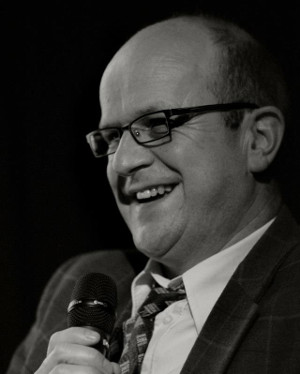Young People Demand: Where Is My Public Servant?
Resource type: News
UK Authority | [ View Original Source (opens in new window) ]
By Dan Jellinek
 Public Achievement chief executive Paul Smyth
Public Achievement chief executive Paul SmythA Northern Ireland-based project helping young people from tough social backgrounds become online political campaigners is looking to expand its model outside the UK, UKAuthority.com has learned.
WIMPS – “Where Is My Public Servant?” – was set up in 2004 by Belfast charity Public Achievement. Its initial aim was to help young people identify and contact their elected representatives at local authority, Northern Ireland Assembly, Westminster and European Parliament levels through a web search.
The project – which this week won the ‘community impact’ category at the national Tech4Good Awards 2014 – has since grown to help young people to learn online film-making, journalism and campaign skills.
It has been backed by The Atlantic Philanthropies, a grant-making foundation set up by inspirational Irish-American billionaire Chuck Feeney. Further funding has come from other grants, donations and income generated by Achieve Enterprises, the trading arm of Public Achievement.
The project has developed online tools to help young people organise campaigns, setting targets and milestones and charting their progress. Campaign issues picked by the young people range from the commonplace, such as improving rural transport, to more unusual issues specific to Northern Ireland such as attempts to curb so-called “punishment attacks” by paramilitary groups.
“In Northern Ireland we have a residual problem from the conflict: our paramilitaries take it on themselves to dispense justice in local communities”, Public Achievement’s chief executive Paul Smyth told UKAuthority.com.
“In nationalist areas this tends to mean shooting people through the knees and elbows, in loyalist areas people are beaten badly with cudgels. It is brutal.
“Young people we worked with started writing to politicians about this issue, but they didn’t get very far. Then we suggested they put in a Freedom of Information request to the Police Service of Northern Ireland, to find out some of the statistics. When the information came back, we found out their clearance rate for these crimes was only about 4%. We fed it to the local media, and it became an incendiary issue.”
The young WIMPS campaigners soon found themselves in demand for media interviews and were invited to give their views to the Northern Ireland Policing Board, Smyth said. Eventually, their success and skill in publicly skewering officials from the chief constable downward led directly to policing targets being set to reduce this kind of violence. “The videos take a lot of adults by surprise – they are not expecting them to be as good as they are. But the campaign is sadly ongoing, as the attacks are still happening at a rate of at least once a week.”
Other campaigns have included urging the Northern Ireland Assembly to debate whether 16-year-olds should gain the right to vote, Smyth said, with a motion eventually passed by two to one. A WIMPS crew is now working with other organisations UK-wide to press for national action at Westminster, needed to change the law.
The WIMPS model works, but it is does not just happen by developing digital tools and opening them up for use, Smyth said. All WIMPS teams are supported by a volunteer “coach” to help young people conceptualise, design, implement and launch a project or campaign.
“I am not one of these people that thinks Twitter caused the Arab Spring”, said Smyth. “Political circumstances caused it, and Twitter happened to be available to people. The internet does not cause activism. For people to believe they can change things, it often requires long term intervention, people working with them who believe change is possible. The tools by themselves are not enough.”
Many young people involved in the project do not start out with any interest in politics, but might be interested in making films and are then helped to think about the messages they might like to communicate, Smyth said.
“Most of the young people we work with are from tougher social realities, they are not people who would normally interact with politicians. The project helps to change their world view, show them how change happens, wake their political consciousness.”
There are currently 14 WIMPS groups across Northern Ireland, and one in the neighbouring county of Donegal in the Irish Republic, each comprising 8-10 young people, though they also hold one-off events drawing in much larger groups, he said.
The charity now plans to try to find independent partners outside the UK that share the same ethos, to bring the WIMPS model and principles to young people across the world, Smyth said.
“We are very keen that our model might be used in other countries, particularly in post conflict societies”, he said. “We are thinking about different kinds of models such as franchising.” To this end, the WIMPS brand has already been registered in the US and Europe, Smyth said.
On the eve of the Tech4Good awards, he welcomed the project’s nomination, but said the current breakdown of talks between political parties in Northern Ireland to resolve a serious of contentious issues including parade routes and flags had dampened celebrations.
“It is wonderful for us that we have been nominated for this award , but it’s ironic it comes at a time where our politicians have walked away from peace talks. It puts a cloud over the award, and it is disappointing for young people here when our politicians don’t show leadership in moving our country forward.
“Often in WIMPS young people are very critical of politicians and how they handle situations. In my experience, there can be a lot more leadership shown by young people, who put themselves at risk.”
Learn More
Where Is My Public Servant (WIMPS) is an Atlantic grantee via Public Achievement.